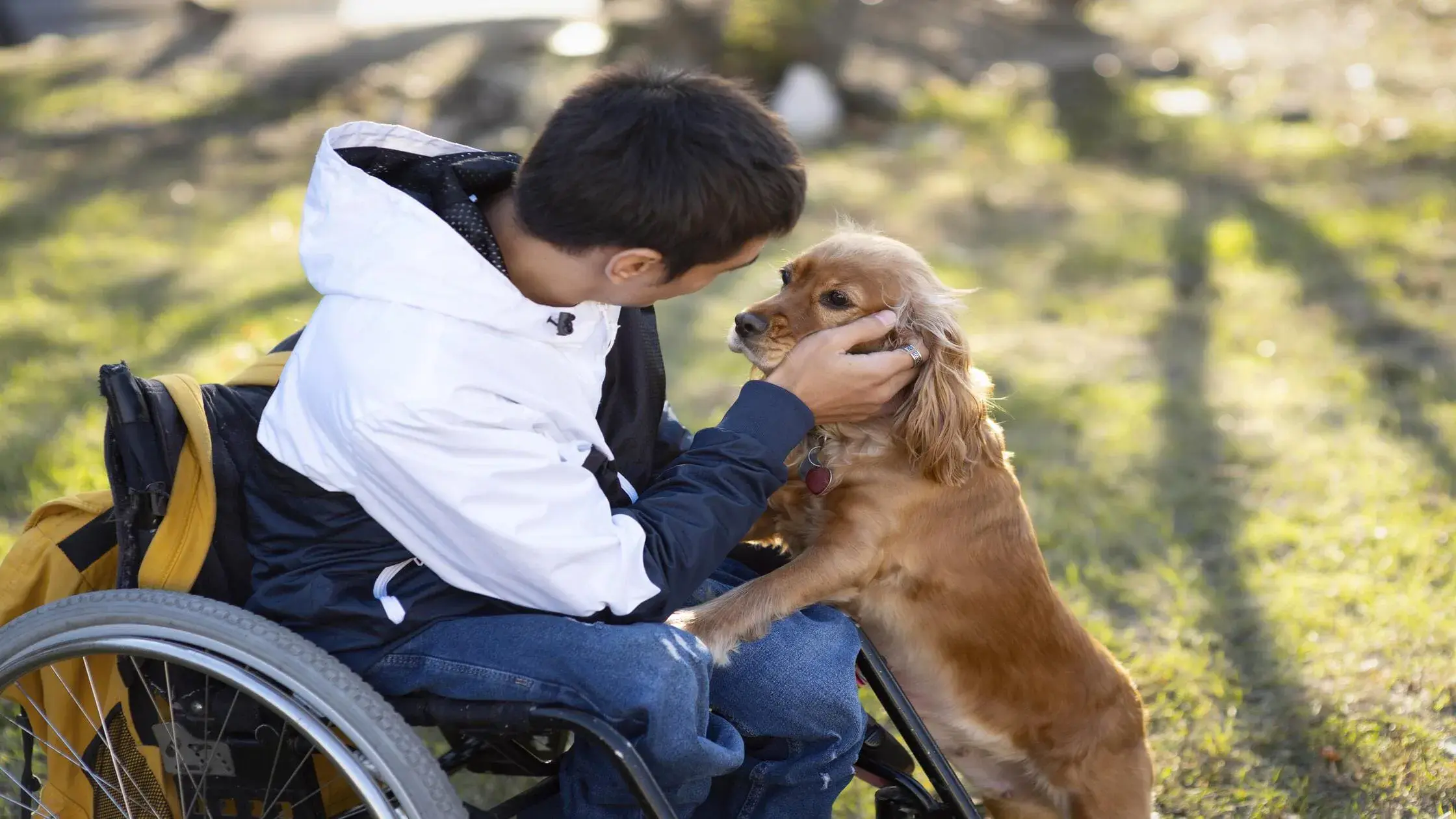Navigating Colorado pet rent laws in 2025 is crucial for both landlords and tenants due to rising pet ownership among renters. This article from LeaseRunner explores the current pet rent law in Colorado. We cover fee limits, assistance animal rules, and tenant protections. We also provide landlords with legal tips to avoid disputes. Staying informed about the latest state rules is key to fair tenancy and compliance.
Overview of Pet Rent Laws in Colorado
Colorado has pet-friendly rental laws, operating under a strong legal framework that balances landlords’ control and tenant rights. For landlords, Colorado is a landlord-friendly state, providing clear pet rent guidelines to protect their properties. For renters, the state imposes pet fee and deposit limits. Those rules ensure transparency and strengthen their tenant protections against landlords’ illegal acts..
Is Pet Rent Legal in Colorado?
Yes, pet rent is legal in Colorado. Pet rent rules in Colorado define when and how much landlords can charge for pet ownership. They set clear pet fee limits to protect renters from excessive charges
Landlords must state pet rent terms in the lease agreement. Especially, they are obliged to apply these terms consistently to all tenants.
Current Legal Status (2025 Update)
House Bill 23-1068 defines the legal status in 2025. These regulations are now firmly in place. They represent a major shift in how the state addresses pets in rental housing. The bill, along with others, is part of a series of New Colorado rental laws 2025. These laws aim at bolstering tenant protections.
Before this legislation, landlords could set pet fees and deposits without many limits. The new framework introduces uniformity and predictability. The cap on monthly pet rent and the requirement that pet deposits be refundable are the cornerstones of the current law.
Furthermore, another legislative effort, a proposed bill on pet rentals (HB 25-1207), was signed into law in May 2025. This bill primarily targets affordable housing developments receiving public financing. It will prohibit breed or weight restrictions. It also mandates that these new developments be pet-inclusive starting in 2026.
Pet Fee and Deposit Limits in Colorado

Colorado’s laws on pet fees and deposits protect both landlords and tenants. They set financial limits and mandatory refundability. Understanding these caps is essential for compliance with Colorado pet rent laws.
Security Deposit Caps and Pet Deposits
Colorado law imposes restrictions on the total security deposit amount a landlord can collect. The state does not adhere to a one-month cap deposit rule like some other states. Pet-related charges are strictly limited in Colorado, with the security deposit limit capped at $300 per pet, and this amount must be fully refundable to the tenant.
Landlords can use the security deposit to cover pet-related damages by following the Colorado security deposit law, but only if the lease explicitly allows it. The Colorado pet deposit limit ensures affordable and fair charges for tenants with pets.
Rules on Pet Rent Charges
Landlords may charge pet rent, capped at $35 per month or 1.5% of the monthly rent under Colorado’s pet rent laws.
The monthly pet rent in Colorado is a recurring, non-refundable fee designed to compensate landlords for extra wear and tear caused by pets. As Colorado has strict rent control laws, landlords have to carefully evaluate the damages when setting the rent increase amount.
Refundable vs. Non-Refundable Pet Fees
Colorado law prohibits non-refundable pet fees. All pet-related charges must be clearly stated in the lease agreement and must be refundable if there is no damage. Landlords must provide clear documentation of these charges. Those pet policies protect tenants from unfair treatment and limit landlords’ liability.
In Colorado, pet fees and deposits correlate with each other. Many landlords combine a small pet fee with a refundable deposit when allowed by law. Therefore, knowing the distinction between pet fee vs deposit is important to stay compliant. A pet fee is a one-time, non-refundable charge that provides upfront compensation and simplifies accounting. But it may not cover all damages. Meanwhile, a pet deposit is refundable and can be used for repairs, encouraging tenants to prevent damage.
Local Ordinances and City-Specific Rules
State law sets the financial caps for Colorado pet rent laws. Cities also have more pet rules landlords must follow. Some examples include:
- Denver: Requires pet licensing and has specific animal control regulations. The city enforces leash laws, meaning dogs must be physically restrained in public areas except in designated off-leash parks. There are also breed-specific permits for certain dogs. Landlords must follow these local rules along with state pet rent laws.
- Boulder: Enforces pet waste disposal rules and limits the number of pets in rental properties. Landlords must ensure tenants follow clean-up requirements.
- Aurora: Requires pets to be licensed and vaccinated, with limits on exotic animals. Certain areas also have dog breed restrictions.
- Colorado Springs: Has rules about pet noise (barking). This can lead to complaints that affect tenancy. Pet owners are expected to prevent disturbances.
- Fort Collins: Implements pet registration and leash laws. It limits the number of animals permitted per household.
Landlords should update local ordinances to avoid severe punishment. Using a Pet Addendum Template and a clear lease clause for pets in Colorado helps follow both state and local legal requirements. A thorough Pet Policy Lease Sample from LeaseRunner creates compliant agreements, minimising disputes.
Pets, Service Animals & Emotional Support Animals

Federal and state laws treat animals providing disability support very differently from pets. Landlords must follow specific rules regarding assistance animal housing. Following these rules helps landlords avoid severe discrimination penalties.
Emotional Support Animal (ESA) in Colorado
The main legal framework for the Colorado law on emotional support animals comes from the federal Fair Housing Act (FHA). Under the FHA, an Emotional Support Animal (ESA) is defined as an animal that provides necessary support to a person with a disability, helping them equally enjoy and use their home.
While the definition of a service animal in Colorado housing usually means an animal trained to perform specific tasks for individuals with disabilities. Both ESAs and service animals fall under the protections set by the federal FHA, which prohibits discrimination in housing based on disability.
When Pet Rent and Fees Cannot Be Charged
Landlords cannot charge pet rent or deposits for service animals or emotional support animals (ESAs). ESA laws in Colorado regulate that ESAs are not charged fees. The fees that are prohibited from applying for assistance animals include pet deposits and monthly pet rent.
Verification and Documentation Rules in Colorado
Landlords have the right to ask for documentation, but cannot request specific details about a tenant’s medical disability. These documents verify their disability and prove the need for an ESA.
The verification process for an assistance animal requires the tenant to provide an ESA letter from a healthcare provider. The letter must confirm the tenant's disability and state the necessity of the animal.
Rights and Responsibilities for Landlord and Tenants

Pet rent laws in Colorado define both parties' rights and responsibilities. Landlords have obligations to comply with the laws and care for the deposit. Tenants have obligations to care for the pet and property damages.
Landlord Duties Under Colorado Law
Landlords have clear landlord obligations for pets, including giving a rent receipt for all pet charges. Furthermore, under the federal Fair Housing Act (FHA) and the state’s Anti-Discrimination Act (CADA), landlords must make reasonable accommodations for tenants with assistance animals. They must follow all applicable provisions, including non-discrimination housing Colorado statutes (C.R.S. § 24-34-502.2). Meanwhile, the tenant remains responsible for any damage caused by the assistance animal. Therefore, renters should have pet liability insurance to protect themselves from huge costs.
The notice requirements security deposit requires landlords to give a statement of damages if they keep any deposit money (C.R.S. § 38-12-103). The right to reasonable accommodation protects disabled tenants.
Also, Colorado pet rent laws (HB 23-1068, C.R.S. § 38-12-106) ban landlords from using blanket dog breed restrictions in Colorado to deny housing based only on breed. Landlords seeking clarity on their legal obligations should review what a landlord cannot do.
Tenant Rights and Obligations
Tenants in Colorado have rights and duties under the state’s pet rent laws. Tenants have the right to have a pet (if permitted by the landlord) and the right to reasonable accommodation for service animals and ESAs.
According to House Bill 23-1068, landlords cannot enforce breed-specific restrictions on dogs, protecting tenants’ rights to keep their pets. Tenants must take responsibility for any damage caused by their pets and follow all laws and lease terms.
Tenants in Colorado are generally protected from eviction for temporarily caring for a pet, such as a dog sitting, unless explicitly prohibited by a lease clause. According to Colorado Revised Statutes § 13-40-107, eviction may only proceed if the tenant clearly violates lease terms.
Managing Pet-Related Damages and Deductions
Landlords in Colorado can deduct money from the security deposit for pet-related damages. This is allowed only if the lease agreement permits it. The damage must also be more than normal wear and tear. The notice requirements security deposit requires landlords to provide a detailed statement of damages if they keep any portion of the security deposit.
The deduction must be legal. It cannot break the non-discrimination housing Colorado rule regarding assistance animals. The deduction process relies heavily on documenting the property condition at both ends of the lease. A formal move-in inspection and a move-out walkthrough help support lawful deductions.
Considering the financial exposure, requiring tenants to carry pet liability insurance for renters is also a wise practice.
Best Practices to Avoid Disputes for Landlords

Landlords can avoid disputes by using best practices for pet charges. Clear documents and setting early expectations are the best ways to keep a smooth tenancy under Colorado pet rent laws.
1. Communicate Pet Expectations Early
Set clear pet criteria during the tenant screening process in Colorado to ensure responsible pet ownership. Outline allowed pets, pet rent, and deposit limits upfront. Using an online trusted tenant screening platform like LeaseRunner helps landlords verify pet details and enforce consistent policies.
To collect all applicants’ documents easily, LeaseRunner provides you with a secure and simple online rental application process. With one click, you can manage tenant information, run tenant screening and selection processes efficiently.
2. Clear Pet Terms in the Lease
Landlords must put clear, detailed pet terms in the lease. This includes the exact pet rent, the Pet deposit limit in Colorado, and the tenant’s duties. Using a complete Pet Addendum Template in Colorado is the best defence against disputes.
You should prepare a well-written lease clause that pertains to Colorado, and a strong Pet Policy Lease Sample.
3. Document Property Condition Before and After Tenancy
Landlords should carefully document the property condition before and after tenancy. This is needed to legally deduct pet damage costs. A formal move-in inspection and a move-out walkthrough help landlords document the property's condition. This ensures fair treatment for tenants. Landlords also get the evidence needed to support deductions.
4. Keep Transparent Records of Fees
It is important for landlords to have a clear accounting of all pet fees, including any pet rent, deposits, and deductions from the security deposit. A clear accounting protects landlords against claims alleging that they overcharged the tenant for pet-related fees or wrongfully retained the deposits.
5. Implement Pet Damage Clauses and Insurance Requirements
Clear pet damage provisions must be included in the lease or in a separate pet addendum. These provisions will clarify what is expected of tenants in regards to damage caused by their pets. It will cover behavioural expectations for pets and outline any penalties for not adhering to these expectations.
Landlords should also require tenants to carry renters' insurance that covers pet liability. Such insurance protects both landlord and tenant if a pet causes an accident or injury.
6. Make Property Pet-Friendly with Protective Upgrades
Making properties pet-friendly with protective upgrades lowers the risk of damage. Installing durable, washable flooring and window treatments makes cleaning easier. Using rugged landscaping materials and adding secure fencing protects outdoor spaces.
Designating specific pet-friendly areas shows tenants that pets are welcome. These efforts foster respect between landlords and tenants and minimise potential disputes.
Conclusions
Colorado pet rent laws protect both landlords and tenants. They ensure fairness and transparency in rental agreements. Understanding Colorado pet rent laws is essential for anyone renting or leasing property in the state. These laws impact many things, from monthly charges to the rights of emotional support animals.
By following best practices and staying informed about the latest regulations, landlords and tenants can avoid disputes and ensure a positive rental experience. We at LeaseRunner provide resources and tools to help you manage rental property effectively.
FAQs
1. What is the new pet rent law in Colorado?
The new pet rent law in Colorado caps pet rent at $35 per month or 1.5% of the monthly rent, whichever is greater. This law applies to all rental properties in the state. It is designed to prevent excessive charges.
2. What is the maximum amount a landlord can charge for pet rent in Colorado?
The maximum amount a landlord can charge for pet rent in Colorado is $35 per month or 1.5% of the monthly rent. Use whichever amount is greater. This amount must be clearly stated in the lease agreement.
3. Can a landlord break a lease for pets in Colorado?
Yes, a landlord can break a lease for pets in Colorado if the tenant violates the terms of the lease agreement. This could be by having an unapproved pet or causing excessive damage. However, landlords must follow all applicable laws and provide proper notice. For details on the lawful process, review the eviction process in Colorado.
4. Can I get evicted for pet sitting in Colorado?
Tenants in Colorado generally cannot be evicted for pet sitting, as long as they are not violating the terms of the lease agreement. The rule ensures that tenants are not evicted for temporarily caring for a pet unless the action violates a specific lease clause.



